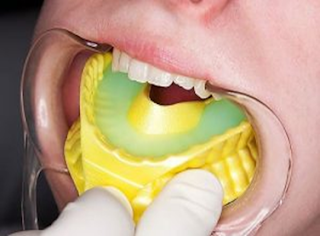BLEEDING GUMS DURING PREGNANCY: SHOULD YOU WORRY?

Did you know that pregnancy can affect your oral health? About half of pregnant women experience bleeding, swollen, tender gums. Chances are more that during your pregnancy, you will experience a myriad of symptoms you have never had before. Bleeding gums is one such condition also known as ‘pregnancy gingivitis’ . Causes: Hormonal changes during pregnancy may cause inflammation of the gums….. This inflammation makes you susceptible to infections from bacteria found in plaque….. Infections leave your gum tender and swollen, which is why they often bleed when you brush. Complications: While mild gingivitis likely won’t harm your baby, if left untreated, pregnancy gingivitis can progress to periodontitis which can increase the risk of premature birth, low birth weight or preeclampsia. PrPPPPPP Prevention: Proper oral health during pregnancy is the best way to prevent gingivitis. Use soft bristled toothbrush and brush gently twice a day. Brushing roughly c

